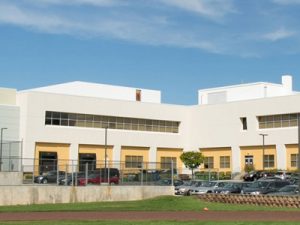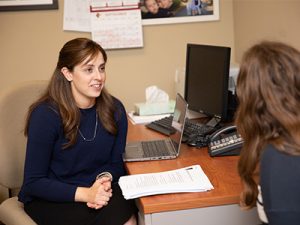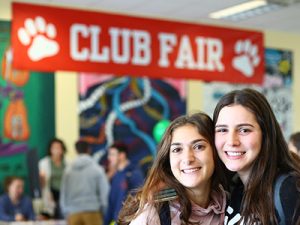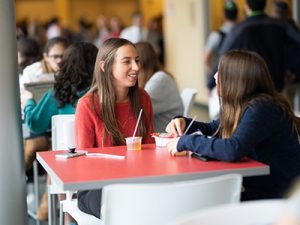Night Seder Students Complete Masechet Megillah
May 24, 2023
Shortly before Shavuot, six Yeshivat Frisch Night Seder regulars made a siyum on Masechet Megillah: Shai Hahn ‘23, Yosef Feldman ‘24, Jonathan Rosenberg ‘24, Tamar Rosenfeld ‘23, Ari Spivack ‘23, and Judah Vogel ‘24. More siyumim by other Night Seder participants are expected to follow, as other chavrutot work their way through.
“At Frisch Night Seder special attention is given to ensure that everyone who wants a chavrusa finds one,” said Spivack, who will be attending Yeshivat Har Etzion in the fall. “Looking around the beis medrash makes me feel a part of something truly special. Whether it’s the warm chevra at Night Seder that learn together or Chidon, there is a feeling of community and belonging to Talmud Torah at Frisch that pulls you in and kept me motivated to come back again and again to be a part of it.”
Vogel’s appreciation for this learning community was reflected in a daf that particularly stood out to him. “I’d have to say that my favorite thing I’ve learned was on daf zayin of Taanis,” he recalls. “It talks about the power of chavrusa learning and how when people learn together they sharpen each other’s skills. It’s especially powerful because I learned it in Night Seder in a chavrusa where I see the benefits of chavrusa learning firsthand.”
Senior Josh Knoll emphasized the role that other students have played in his growth. “The students at Frisch have made a huge impact on my Torah learning experience,” he said “They have challenged me and inspired me and I know these friendships will last a lifetime. I’ve also had the amazing opportunity to learn Gemara and Chumash every Thursday night at Night Seder b’chavruta. Learning closely with a learning partner has helped me dive deeper into what we are learning and gaining another person’s perspective has opened my eyes to other ways of thinking.”
Knoll, who will be attending Yeshivat HaKotel in the fall, served this year as co-captain of the Chidon HaTanach club alongside fellow senior Rosenfeld, who will attend Migdal Oz. “When I was given the opportunity to co-lead the Chidon HaTanach Club, I was thrilled,” he recounted. “I love studying and preparing for the Chidon competition, and I was super excited to have the opportunity to really share my love of Torah and Chidon with other students.”
Rosenfeld notes that her favorite text to study has been Shmuel Bet. “I learned it with multiple people at once, and each person I learned it with had different insights, nuanced close-readings and sophisticated analysis that made me read the same pesukim in completely new ways,” she said. “While learning Shmuel Bet in this way, I truly appreciated that there are shivim panim leTorah.”
“When someone else is excited about the same thing you are, you can’t help but become more excited,” said sophomore Ilan Romm, who came third place in the Dr. Shimshon Isseroff Chidon HaTanach USA national finals this year. “When you become more excited, so does the other person, so an infinite cycle of excitement is created. Learning with friends as part of Chidon and Night Seder not only pushes yourself and your chaburah to learn more, but makes you wish to share this surplus of excitement and learning with everyone else outside of these clubs.”
The value of community is one echoed across the beit midrash. “The community at Frisch has been so supportive, and I really think it’s a testament to the school as well as specifically talented and dedicated teachers that the Torah-learning community has become so robust,” said junior Maya Tratt, who came in seventh place in this year’s International Chidon HaTanach for Youth and is poised to lead Frisch’s Chidon Club next year.
In addition, the students emphasized unequivocally how important Frisch’s faculty has been to their growth in Torah. “I think one of the highlights of Frisch is the ability to have an intimate and close connection to the rebbeim and the other Torah faculty,” said Hahn, who will be attending Yeshivat Kerem B’Yavneh (KBY) in the fall. “The things I’ve learned from my rebbeim over the past four years of being in Frisch have greatly impacted how I learn, approach my learning and act toward people in the real world. For example, this year, I had Rabbi [Noah] Gardenswartz for shiur, and I learned many skills from him, but one of the most important things I learned from him was mesorah. Hearing how he talks about the Tannaim, Amoraim and Rishonim makes them not just words on a page but real, living, breathing people in the classroom with you and who you are having a dialogue with.”
“The most meaningful part of my Torah learning at Frisch has been the relationships I have cultivated with my rebbeim and teachers during their classes,” Knoll agreed. “The Torah learning opportunity that I look forward to most every week is Rabbi [Joshua] Wald’s Thursday night Mishmar. In addition, Rabbi [Yair] Shahak and Rabbi [Asher] Bush have played a huge role in helping us prepare for and organize Chidon HaTanach related events. They have gone out of their way to make sure that we have as much study material as possible and that all the logistics are taken care of. They have been our biggest supporters.”
Rabbi Shahak, who won the 2016 International Chidon HaTanach for Adults, coaches Frisch’s Chidon HaTanach Club, giving students study strategies, comprehensive questions, maps, mnemonic devices and pasuk-by-pasuk breakdowns of difficult Chidon material.
“Personally I would not have been able to accomplish whatever I managed without the help of Rabbi Shahak as well as a cohort of immensely wonderful friends and teachers who were always supporting me,” said Tratt.
In the case of junior Yosef Feldman, who will serve as head of Night Seder and captain of the boys Torah Bowl team next year, his lunchtime chavruta is someone extra special: his own father, Frisch faculty member Rabbi Jonathan Feldman. The two learn together every lunchtime. “I appreciate the fact that the beis medrash is open all day, allowing me to learn during my free time,” said Yosef. “At Yeshivat Frisch, there are numerous rebbeim available in the beis to assist you with any shailos related to Halacha, studies or life.”





